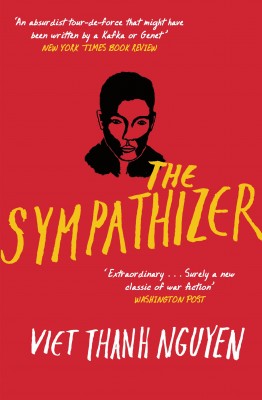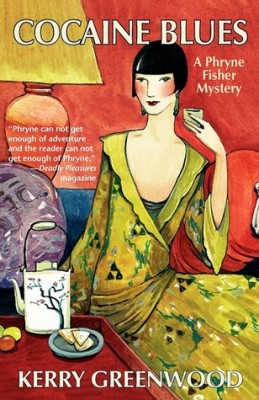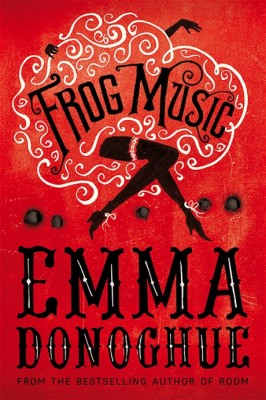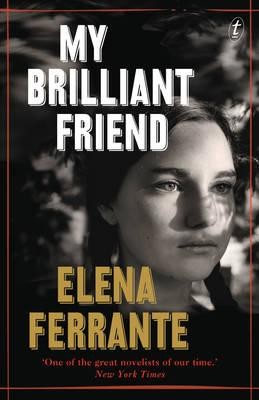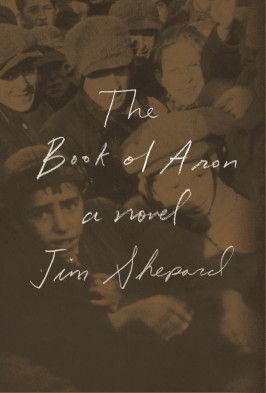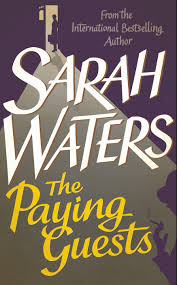Commencing in the last days of Saigon, this novel follows the fate of a Captain in the South Vietnamese Army. Aide to a General, bastard son of a French priest…Communist agent. The novel is written in the form of a confession given while in custody – we don’t learn until close to the end who has actually captured our protagonist.
I liked this book, by which I mean I thought it was good. However, I also did not like it, in that I did not enjoy reading it. So what happened? Continue reading The Sympathizer
It’s been pretty quiet on the Book Report front for a while now, and there are several good reasons for that, namely: (a) a re-read of The Lord of the Rings while on holiday in New Zealand because appropriate; followed by (b) a re-read of some Agatha Christie faves, also while on holidays, because it’s holidays and I don’t want to read anything depressing and/or that I don’t already know the ending of; followed by (c) the following.
Continue reading Cocaine Blues (et al)
Ever since I was a teenager, and realised I had a choice about it, I’ve tended to avoid reading the blurbs of books before I read the books themselves. Possibly because so many copywriters are failed novelists, I’ve often found that blurbs are far too eager to try to dictate to me what the subtext of a book is, or explain its thematic intentions. I’d rather dive into a novel without preconceptions about what I should expect to find there.
Continue reading Frog Music
Moss’s previous work includes two interrelated novels, Night Waking and Bodies of Light. Signs for Lost Children, her most recent, is the third in that series, picking up more or less where Bodies of Light left off. It follows the career of Alethea (Ally) Moberley, a fictional character who, along with her associates, is reputedly modelled on the pioneering group of female medical students known as the Edinburgh Seven, some of the first women to qualify as doctors in Britain. At the beginning of Signs, Ally has graduated, married, is living in Cornwall and is commencing voluntary work at a lunatic asylum in order to pursue her interest in mental illness.
Continue reading Signs for Lost Children
Beginning in 1947, this novel traces the lives of four interconnected Londoners back through time into the Blitz. I’m a complete tragic for anything set in this time and place, so it’s no surprise that I ripped through it quite happily. As an example of Waters’s work, it’s relatively typical, though certainly not her best (probably The Little Stranger or Fingersmith, though I can’t claim to have read them all). The reverse chronological is the perfect mechanism for this particular plot, and it makes me wonder which she decided on first, format or content; I like to imagine her coming up with the story and then, in a flash of 2am inspiration, realising how much more effective it could be if the flux, so to speak, were reversed.
Continue reading The Night Watch
I’ve been wanting to read this FOREVER (three years) but kept putting it off: it’s the first in a series of novels and I wanted to wait until they were all available to binge on. I thought I’d made it, and only realised this morning that although the fourth and final one has been published, the English translation won’t be available till October. Bummer.
Continue reading My Brilliant Friend
This novel consists of the first-person narrative of a young Jewish boy, Aron, in Poland; beginning in the late 1930s, it follows his family as it moves to Warsaw and, inevitably, into the ghetto following the German invasion. What I read about the book before I started it indicated that it would be primarily a story about Janusz Korczak, a real historical figure, who ran the principal orphanage in the Warsaw ghetto and was a passionate advocate for the rights of children. Really, though, he doesn’t feature in the story, except in glimpses, until about two thirds of the way through, when all of the other adults in Aron’s life have been taken from him.
Continue reading The Book of Aron
Waters delivers more of what she’s good at: history and lesbians. This one is a page-turner while it lasts, but I have to say that it left me a bit less satisfied than previous efforts. Possibly, this might have something to do with the fact that it’s pretty much a straight (unintended pun) narrative journey from A to C via B; it doesn’t have the twists, turns and mysteries of some of her other novels. Continue reading The Paying Guests
A Vietnam-era coming-of-age novel set in a fictional Long Island town during the summer after Katie, its 18-year-old protagonist and first-person narrator, finishes high school.
This is a new debut novel, and it’s probably the best one I’ve read since “The Shock of the Fall” by Nathan Filer. Continue reading If I Knew You Were Going to Be This Beautiful I Never Would Have Let You Go
If you’re not already aware, this purports to be an Hercule Poirot novel written by someone other than Agatha Christie, and ehhhhhhh I don’t know. It always strikes me as a weird choice to make. I mean, sure, you’ll sell books to idiots like me who can’t help themselves, but you know you’re going to be compared to someone much more famous and probably more beloved, and unless you really nail it, it’s always going to be judged a failure. Just come up with your own campy foreign eccentric and have your work assessed on its own merits. Continue reading The Monogram Murders
